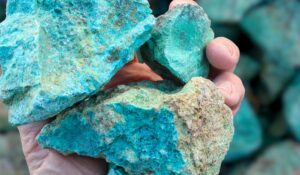As we kick off the new year, it’s time for a reminder to all you metal investors, of why nickel is so important. Granted, nickel may not grab headlines like gold or lithium, but it is absolutely essential to the modern world. From stainless steel and transportation to energy, healthcare, food safety, and water treatment, nickel is everywhere. But nickel’s importance has reached new heights with the rise of electric vehicles (EVs) and the push toward a cleaner, decarbonized future. In particular, modern lithium-ion batteries depend heavily on nickel. High-performance batteries now contain up to 70% nickel in their cathodes, thanks to the metal’s ability to deliver high energy density and greater driving range.
This surge in demand is putting intense pressure on global nickel supplies. While nickel itself is relatively abundant in the Earth’s crust, Class I nickel the high-purity grade required for battery production is far scarcer. Even more limited is Class I nickel that can be extracted efficiently, economically, and with minimal environmental impact. At the same time, nickel producers face a growing storm of conflicting demands. On one side is soaring global demand driven by the energy transition. On the other is a complex web of environmental regulations, social scrutiny, and geopolitical instability. As nations and companies work to decarbonize their operations, nickel supply chains are coming under more scrutiny than ever.
Despite a clear long-term growth trajectory for nickel, investment in new mining and refining projects has lagged behind. Much of this hesitation traces back to the nickel price crash of 2007, driven largely by overproduction and market manipulation from China. That event left deep scars among Western investors, many of whom have since kept clear of the sector.
In that vacuum, China has tightened its grip on global nickel supply, expanding its control over mining operations and nickel processing. This dominance has turned nickel into not just a commodity, but a strategic asset—one that Western nations are increasingly anxious to secure.
Governments across North America and Europe are showing concern but their initiatives to boost domestic production, encourage ethical sourcing, and develop strategic reserves are, for the most part, not yet serious enough to make a real difference and, if western capital continues to sit on the sidelines, supply imbalances may worsen—leading to greater upwards price pressure and geopolitical risk. Of course, this has the potential to reward investors who are well positioned in nickel. There are plenty of options – from ETFS to producers to developers… even explorers if the assets are advanced enough and the jurisdiction is stable and has a straightforward path to production.
Nickel’s role in building the future is too important to ignore. As the world transitions to greener technologies, how we source and invest in nickel may very well shape the success of the energy transition itself.
Anthony Milewski
Chairman, Nickel 28 Capital











